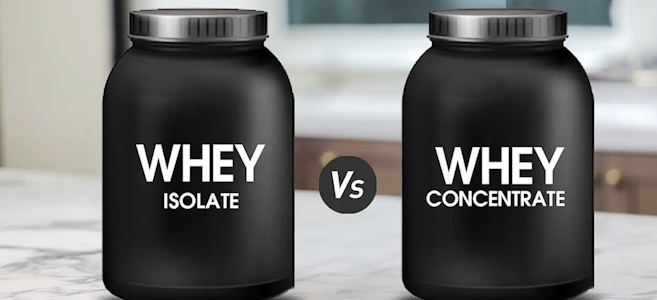When it comes to supplements for fitness enthusiasts and athletes, whey protein is often at the forefront of discussions. However, not all whey protein products are created equal. Among the most popular options are whey protein isolate and whey protein concentrate. Understanding the differences between these two forms of whey protein can help you choose the one that best aligns with your health and fitness goals.
What is Whey Protein?
Whey protein is a high-quality protein derived from milk during the cheese-making process. It is known for its rich amino acid profile and quick absorption, making it a favorite among those looking to build muscle, promote recovery, and improve overall health.
Whey Protein Concentrate (WPC)
Whey protein concentrate is the most common form of whey protein supplement. It typically contains 70-80% protein, with the remaining portion made up of fats, carbohydrates, and lactose. Here are some key points about WPC:
- Nutritional Content: WPC retains more bioactive compounds found in whey, including immunoglobulins and lactoferrin, which can contribute to its health benefits.
- Lactose Content: Due to its higher lactose content, WPC may not be suitable for individuals who are lactose intolerant.
- Flavor and Texture: WPC tends to have a creamier texture and richer flavor, which many people find more palatable.
- Cost: Generally, WPC is less expensive than whey protein isolate due to its less intensive processing.
Whey Protein Isolate (WPI)
Whey protein isolate goes through further processing to remove more fat and carbohydrates, resulting in a higher protein content, usually around 90% or more. This makes it a popular choice for those seeking a leaner protein option. Here are some features of WPI:
- Protein Purity: With its higher protein concentration, WPI provides more protein per serving, which can be beneficial for muscle repair and growth.
- Lower Lactose: The processing reduces lactose content, making WPI a better choice for individuals with lactose intolerance.
- Fast Absorption: WPI is absorbed quickly by the body, making it ideal for post-workout recovery.
- Price: WPI tends to be more expensive due to the additional processing involved.
Choosing the Right Option for You
When deciding between whey protein isolate and whey protein concentrate, consider the following factors:
- Dietary Needs: If you’re lactose intolerant or looking for a higher protein content, WPI may be the better choice. For those who can tolerate lactose and prefer a more natural product, WPC might be suitable.
- Fitness Goals: If your primary goal is muscle gain and recovery, both types can be effective. However, WPI might be more beneficial if you’re looking for a low-carb, low-fat option for cutting phases.
- Taste and Texture: Personal preference plays a significant role. Some may prefer the creaminess of WPC, while others might favor the lighter texture of WPI.
- Budget: If cost is a concern, WPC is generally the more budget-friendly option.
Conclusion
Ultimately, both whey protein isolate and whey protein concentrate have their unique advantages. Your choice should align with your dietary needs, fitness goals, and personal preferences. Whether you opt for the richer flavor of whey protein concentrate or the purity of whey protein isolate, you can be confident that either will help you on your journey to better health and fitness. Remember to consult with a healthcare provider or nutritionist if you have specific health concerns or dietary restrictions before incorporating protein supplements into your routine.
